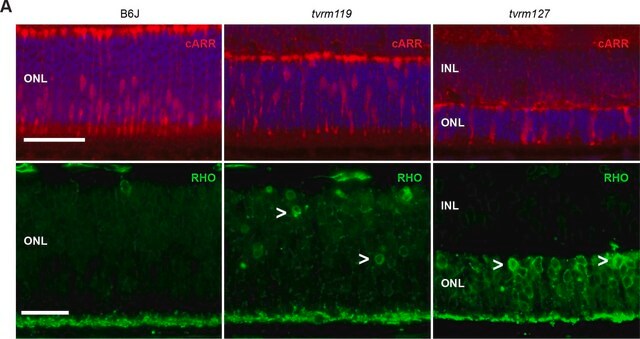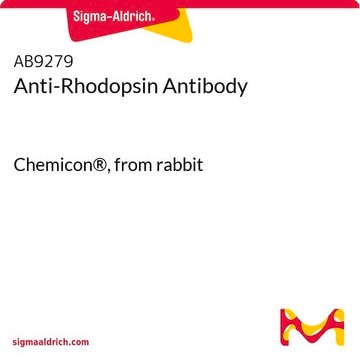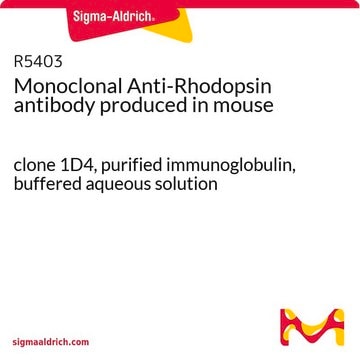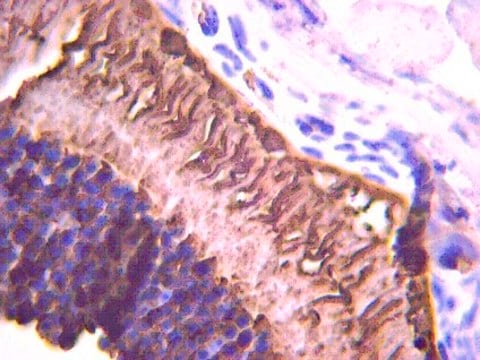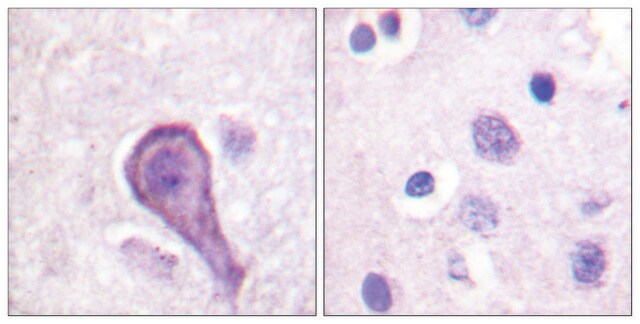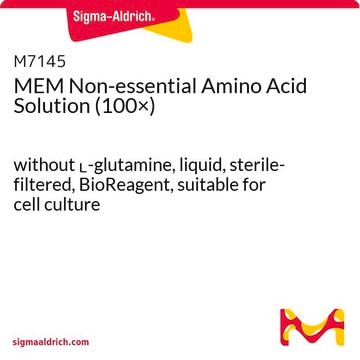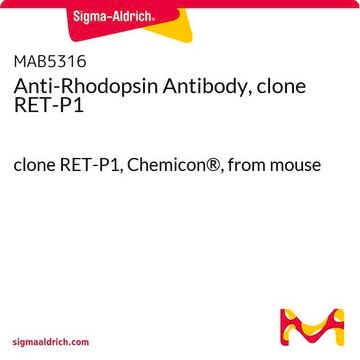R9153
Anti-Rhodopsin antibody produced in rabbit
affinity isolated antibody, buffered aqueous solution
Sign Into View Organizational & Contract Pricing
All Photos(1)
About This Item
Recommended Products
biological source
rabbit
Quality Level
conjugate
unconjugated
antibody form
affinity isolated antibody
antibody product type
primary antibodies
clone
polyclonal
form
buffered aqueous solution
species reactivity
human
technique(s)
immunohistochemistry: 1-3 μg/mL (paraffin-embedded sections)
UniProt accession no.
shipped in
dry ice
storage temp.
−70°C
Gene Information
human ... RHO(6010)
mouse ... Rho(212541)
rat ... Rho(24717)
Immunogen
synthetic peptide corresponding to the second extracellular loop of human rhodopsin, conjugated to KLH. The immunizing peptide has 100% homology with the rat and mouse gene.
Physical form
Solution in phosphate buffered saline containing 0.1% sodium azide.
Disclaimer
Unless otherwise stated in our catalog or other company documentation accompanying the product(s), our products are intended for research use only and are not to be used for any other purpose, which includes but is not limited to, unauthorized commercial uses, in vitro diagnostic uses, ex vivo or in vivo therapeutic uses or any type of consumption or application to humans or animals.
Not finding the right product?
Try our Product Selector Tool.
recommended
Product No.
Description
Pricing
Storage Class Code
10 - Combustible liquids
WGK
nwg
Flash Point(F)
Not applicable
Flash Point(C)
Not applicable
Choose from one of the most recent versions:
Already Own This Product?
Find documentation for the products that you have recently purchased in the Document Library.
Caroline J Zeiss et al.
Journal of morphology, 272(8), 949-957 (2011-05-14)
The purpose of this study is to identify evolutionary origin and fate of anatomic features of the duck-billed platypus eye. Eyes from the duck-billed platypus and four key evolutionary basal vertebrates (Pacific hagfish, north hemisphere sea lamprey, and Australian and
Charles S Schobert et al.
Veterinary ophthalmology, 16(5), 359-364 (2012-11-29)
Troglomorphic fishes provide excellent comparative models for studying eye evolution. We describe the gross and microscopic anatomy of ocular structures of the depigmented, blind cichlid, Lamprologus lethops, and its putative sister species, Lamprologus tigripictilis collected from the lower Congo River
Our team of scientists has experience in all areas of research including Life Science, Material Science, Chemical Synthesis, Chromatography, Analytical and many others.
Contact Technical Service